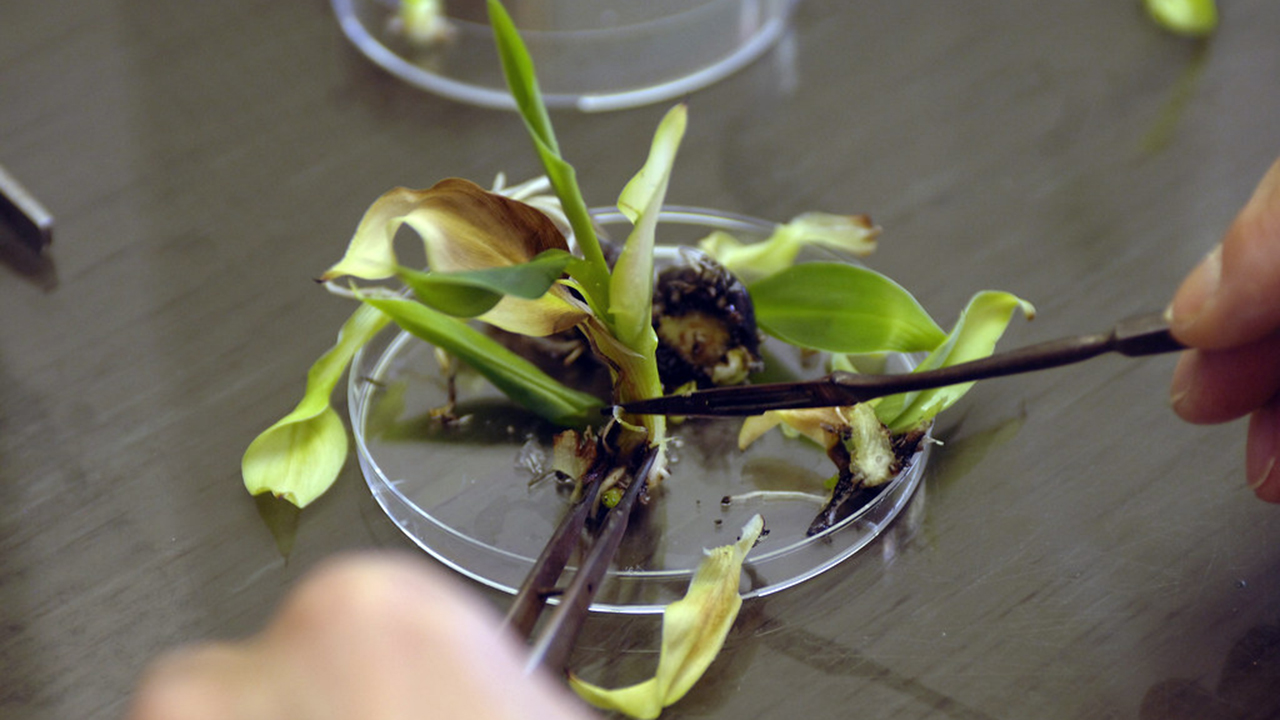
Continued from yesterday
GMO crops are safe as any other food crop
By law, before any genetically modified crop (GM) is released it undergoes intensive safety evaluations. Each signatory country of the Cartagena Protocol should have biosafety laws and a biosafety agency to enforce these laws, and Nigeria has done so. GM crops are analysed for their potential to cause adverse health effects and potential to cause harm to the environment. To this end, laboratory and field tests supervised by biosafety specialists, and specifically designed following guidelines agreed upon by the Government agency and the international communities are conducted with high scientific vigor.
Their results are analysed by the national regulatory authorities, drawing on assistance from experts in the disciplines required to properly analyse the data. The chemical composition of the GM crop is compared to the composition of its sister line; if differences other than the ones intended by the transgene are found, then the GM crop is denied approval.
This is called the equivalent compositional analysis, and guidelines for performance of such comparison provided by international organisations such as the Organisation for Economic Cooperation and Development (OECD) and Codex Alimentarus, a commission established by the United Nation’s Food and Agriculture Organisation (FAO) and World Health Organisation (WHO) are usually followed.
The Genetic make-up of the GM crop is also analysed and submitted to the national biosafety for evaluation. In addition, both the USA and European countries have stringent laws about food safety. In the USA, at least three organisations are involved in genetically modified crop safety, the Environmental Protection Agency (EPA), USDA APHIS (U.S. Department of Agriculture Animal and Plant Health Inspection Service) and the Food and Drug Administration (FDA).In Europe the European Union has a food safety agency in charge of all food safety matters in the Union (The European Food Safety Agency, EFSA). The main role of biosafety agencies or authorities is to ensure that released GM crops are safe to humans, animals and the environment.
The processes of safety analysis are well described (Mendelsohn et al., 2013; Koch et al., 2015; Mathew, N., 2015; Megan L. Norris , 2015).A GM crop is authorized if and only if it passes all safety criteria. GM crops are analysed case per case basis. For example a transgenic soybean expressing the 2S albumin gene from Brazil nut was found to cause allergy (Nordlee, et al., 1996). Despite the noble objective of improving the nutritive quality of soybean by enhancing its content of sulfur containing amino acids (methionine and cysteine, two amino acids essential for health) this transgenic soybean was not approved and its development was stopped..
GMO food and feed have more than twenty years of safety record. During these twenty years, each day hundreds of millions of people consume GMO derived food in the USA, Canada, Brazil, China, Australia, Argentina, Japan, Korea, South Africa, and even in Europe. Per capita, Japan is one of the largest importersof GM soybean as food, as Japanese production of soybean represent only ¼ of the soybean consumed in Japan (https://agrochar.com/en/news/2280/japans-soybean-imports-to-reach-3-15mmt-in2015-16-and-stay-stable-in 2016-17.html). Not a single person in the world has been ill or died as a result of consuming GMO derived food. Annually hundreds of millions of animals are fed with GMO derived feed and there has not been a single documented case of adverse effects as a result of consuming GM feed. And the Europeans who are against GM cultivation are among the top ranked importers of GM food and feed in world.
Annually EU countries import more than 30 million tons of GM food and feed and their animal industry is heavily dependent on this massive import of GM feed, with weak prospect of getting out of this dependency (TarjaLaaninen, 2015, COCEAL, FEDIOL and FEFAC, 2015). Twenty years of consumption of GM food and feed is the strong evidence that GM crops are safe.
Despite this extensive safety record the anti GM groups continue to propagate false information about the carcinogenicity and danger of GMO for health. Citing articles published by authors like Seralini and coworkers (2007-2012), de Vendemômois et al., (2009) (this al includes Séralini) and Finamoreet al., (2008) the Anti-GM activists claimed that GM food crops are dangerous because they cause cancer, damage liver and kidneys and so on.
In 2012 Seralini’s group published its most controversial article on GM maize and cancer in the journal Food and Chemical Toxicology (Food and Chemical Toxicology 50 (2012) 4221–4231). The authors alleged that, glyphosate tolerant GM-maize as well as glyphosate caused tumors or cancers in mice. After many scientists have shown that Seralini’sexperiments had many flaws, he used wrong statistical methods to analyse the data, and he misrepresented the data, the Journal finally retracted the article (https://ac.elsbcdn.com/S0278691512005637/1-s2.0-S0278691512005637-main.pdf?_tid=05e6b914-e572-11e7-9b5e-00000aab0f27&acdnat=1513766534_b804a702d5c0ffe135ac9fecf9fc4108). The Experts of EFSA were among the first scientists to criticize the paper of Seralini and his coworkers).
It should be noted that EFSA cannot be accused of being pro GM crops because it belongs to the EU, which is politically opposed to GM crops. Here we reproduce the whole abstract from the article published by EFSA in its journal 2012 10(10) 2010(the whole document can be found at https://efsa.onlinelibrary.wiley.com/hub/ournal/10.1002/(ISSN)1831-4732/issues/) after examining Seralini’s article: On September 19, 2012, Séralini et al. published online in the scientific journal Food and Chemical Toxicology a publication describing a 2-year feeding study in rats investigating the health effects of genetically modified (GM) maize NK603 with and without Roundup Weather MAX® and Roundup® GT Plus alone (both are glyphosate-containing plant protection products).
EFSA was requested by the European Commission to review this publication and to identify whether clarifications are needed from the authors. EFSA notes that the Séralini et al. (2012) study has unclear objectives and is inadequately reported in the publication, with many key details of the design, conduct and analysis being omitted. Without such details, it is impossible to give weight to the results.
To be continued
Conclusions cannot be drawn on the difference in tumour incidence between the treatment groups on the basis of the design, the analysis and the results as reported in the Séralini et al. (2012) publication. In particular, Séralini et al. (2012) draw conclusions on the incidence of tumours based on 10 rats per treatment per sex which is an insufficient number of animals to distinguish between specific treatment effects and chance occurrences of tumours in rats [for this breed of rats, OECD guidelines require at least 50 rats per treatment for cancer study; Seralini et al. used only 10].
Considering that the study as reported in the Séralini et al. (2012) publication is of inadequate design, analysis and reporting, EFSA finds that it is of insufficient scientific quality for safety assessment. Therefore EFSA, concludes that the Séralini et al. study as reported in the 2012 publication does not impact the ongoing re-evaluation of glyphosate, and does not see a need to reopen the existing safety evaluation of maize NK603 and its related stacks. EFSA will give the authors of the Séralini et al. (2012) publication the opportunity to provide further information on their study to EFSA.
The conclusion is crystal clear: Seralini’s article presents many important deficiencies; therefore it has little scientific value. Besides EFSA, six French National Academies (Agriculture, Medicine, Pharmacy, Sciences, Technologies, and Veterinary Sciences) have rejected the scientific validity of the article of Seralini. We reproduce the summary of their declaration that can be found at https://www.academie-sciences.fr/archivage_site/activite/rapport/avis1012press_gb.pdf.:The French national Academies of Agriculture, Medicine, Pharmacy, Sciences, Technologies and Veterinary sciences, became acquainted at the same time as the general public with the paper published recently one in the scientific journal Food and Chemical Toxicology by Gilles-Eric Séralini et al.
where the authors claim that there is a strong tumorigenic and toxic effect in rats through consuming genetically modified NK603 maize or through low level exposure to the weed-killer Roundup® to which the maize has become tolerant. The 6 Academies signatory share the opinion that numerous methodological and interpretation shortcomings in the paper should not be held to invalidate previous research that concluded in favour of the sanitary innocuousness of NK603 maize and, in more general terms, of authorised, genetically modified plants consumed by both live-stock and humans. For a group of French scientists to be rebuked by six French National Academies is unprecedented in the history of that country.
To be continued tomorrow






